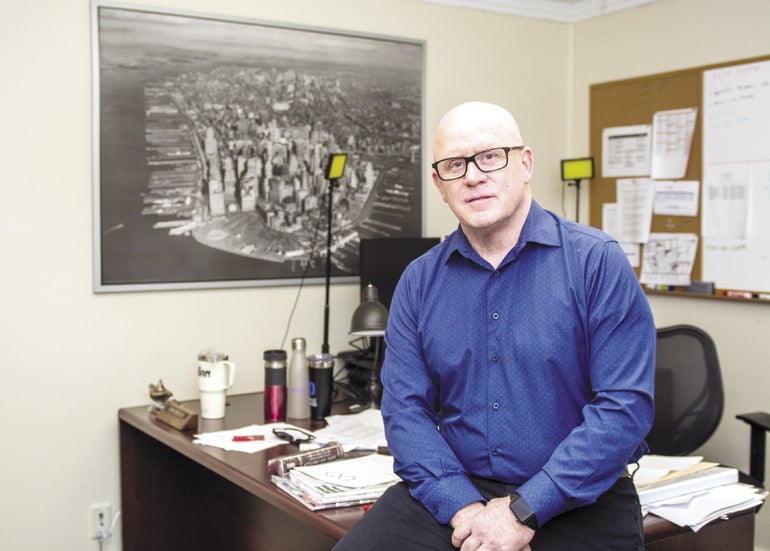In January, more businesses were incorporated in Central Massachusetts than in any other month since at least January 2017, outpacing the state as a whole, which also set a record for new business starts.
With 365 new businesses started in January, Central Massachusetts made up just over 20% of the statewide total of 1,763. Worcester and Framingham led the area, establishing 48 and 41 businesses, respectively, according to a data analysis by WBJ of data provided by the Massachusetts Secretary of the Commonwealth.
The rates of small businesses and startups setting up shop in Central Mass. have spiked post-COVID. In 2021, the number of new businesses in the region rose 14.6%, outpacing the state by 4.5 percentage points. Though growth slowed in 2022, numbers were still on an upward trajectory, reflecting a 1.5% increase from the year prior, while the state as a whole decreased 2.8%.
By 2023, Central Massachusetts startups had superseded 2021’s growth with a 15% rise in new incorporations. New businesses are required to file incorporation paperwork with the Secretary of the Commonwealth in order to operate in Massachusetts, and WBJ has purchased the list of those new businesses and tracked the exact number of startups every month since January 2017.
Overall population growth was a factor in these heightened numbers, said Tom Herald, regional director of the Small Business Development Center at Clark University in Worcester. Central Massachusetts saw an 8.1% increase in population from 2010 to 2020, and in 2023, MarketWatch named Worcester third in the country when it comes to population increase and home sale price-to-income ratio.
In congruence with this population growth, Timothy Murray, president and CEO of Worcester Regional Chamber of Commerce, credits residents re-thinking their careers coming out of COVID and the important factor of the area’s immigrant population:
“Central Mass., Worcester in particular, is a place that’s always been welcome to immigrants, and just upon past data over the years in Worcester and Central Mass., immigrant populations are oftentimes more likely to start their own businesses. That’s without a doubt a piece of it,” said Murray.
Research supports Murray’s claim, including a study published in the American Economic Review: Insights finding immigrants are about 80% more likely to found a firm compared to their U.S.-born counterparts.
In addition to the record set in Central Massachusetts, the state as a whole also set a record for new businesses. The 1,763 businesses incorporated in Massachusetts in January is the highest for any month since WBJ started keeping track in January 2017. The previous record was 1,700 set in January 2021.
In regards to what direction the Central Massachusetts business landscape is heading in, Herald said the prominence of both the life sciences and biotechnology spaces is on the rise, but adds another industry he thinks we’ll be seeing more of:
“An area that’s going to grow here in Central Massachusetts that we haven’t seen before is dealing with financial technology,” Herald said. “The whole fintech world and AI … we’re going to see a different branch of technology develop here.”
Workers don’t have to worry about AI taking their jobs, but they have to worry about those who know how to use AI taking their jobs, Herald said.
In addition to Herald’s predictions, Murray said Central Massachusetts, especially Worcester, has more strength in one particular industry that well known health and life science hubs, Boston and Cambridge, may not be keeping up in: manufacturing.
“We still have a strong manufacturing base in the city and in the region, and supply chains that support and feed each other in the manufacturing side,” Murray says.
New and existing businesses are moving in a more sustainable and eco-conscious direction, said Herald. He references ESG criteria and the triple bottom line, concepts he’s hearing his business students speak on more and more.
ESG, an acronym for environment, social, and governance, is a three-pillar lens through which to evaluate the performance of a company’s operations, especially for those looking to invest. The triple bottom line is a framework in which to broaden the view of a business’ success, zeroing in on three bottom lines: people, planet, and profit.
“We have the resources here,” Herald said. “We have the technology, all the right ingredients, and we have a good rumbling of momentum going.”

